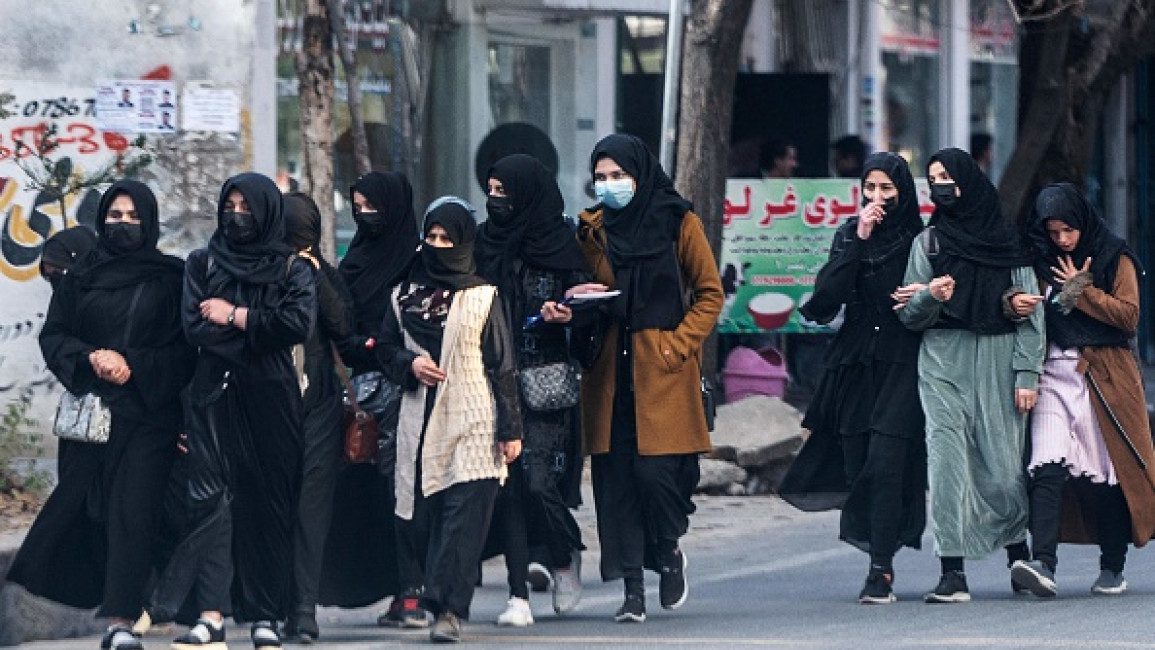World
Afghanistan: Taliban forbids university education for all girls

In an effort to further restrict Afghan women’s access to education and freedom, the Taliban government on Tuesday issued a statewide ban on women attending universities.
The Taliban increased restrictions on all aspects of women’s lives despite promising a softer rule when they gained control last year and disregarded international protests.
In a letter sent to all public and private universities and signed by Neda Mohammad Nadeem, the minister of higher education, it was stated that “you all are informed to promptly follow the indicated directive of halting education of females till further notice.”
The directive was confirmed by the ministry’s spokeswoman, Ziaullah Hashimi, who also tweeted the letter, in a text message to AFP.
The ban on higher education was enacted less than three months after thousands of girls and women across the nation took university entrance tests, with many of them hoping to pursue professions in teaching and medicine.
Universities were compelled to enact new regulations following the Taliban’s takeover of the nation, including gender-segregated classrooms and entrances, and women could only be taught by older males or women professors.
The majority of adolescent girls in the country are already prohibited from attending secondary schools, significantly restricting their access to higher education.
Hibatullah Akhundzada, the Taliban’s supreme leader, and his inner circle of Afghan clerics oppose modern education, particularly for children and women. The Taliban follow a strict interpretation of Islam.
However, they are at odds with many Kabul officials and members of their own rank and file who had hoped that girls would support each other in continuing their education after the takeover.
Many government jobs have been eliminated for women, or they are being paid less to stay at home. They must wear clothing outside the home, preferably a burqa, and are prohibited from traveling alone without a male relative.
Additionally, they were forbidden from visiting parks, fairs, gyms, and public baths in November.
When secondary schools were slated to reopen in March, the Taliban made a nasty U-turn and forbade girls from going back on the scheduled opening day.
Many Taliban officials claim the closing of the secondary education system is only temporary, but they have also rolled out a long list of justifications, ranging from a shortage of funding to the need for time to redesign the curriculum in accordance with Islamic principles.
Many young girls have been married off at an early age since the ban, frequently to considerably older men of their father’s choosing.
Coupled with financial pressure, several families surveyed by AFP last month stated that it was preferable for their daughters to get married off than to remain idle at home.
The right to education for all women has become a contentious issue in discussions regarding assistance and legitimacy for the Taliban government thanks to the international community.
The UN Security Council stated in a statement released in September that “the international community has not and will not forget Afghan women and girls.”
Although the nation remained socially conservative throughout the 20 years between the Taliban’s two administrations, girls were permitted to attend school and women were free to pursue employment in all industries.
